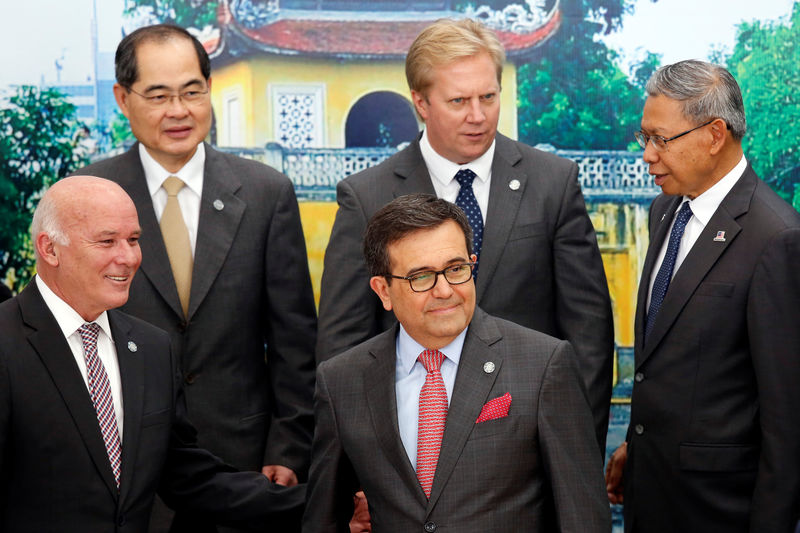By My Pham and Mai Nguyen
HANOI (Reuters) - U.S. President Donald Trump's new trade representative held his first face-to-face meetings with some key partners on Saturday as the United States charts an "America First" policy that has upended the old global order and sparked fears of protectionism.
Robert Lighthizer met ministers from Canada and Japan on the sidelines of a gathering of Asia-Pacific Economic Cooperation (APEC) countries in Vietnam's capital, Hanoi, the biggest trade meeting since Trump took office.
Its members account for over 40 percent of world trade.
Lighthizer and Japan's economy minister, Hiroshige Seko, agreed on strengthening bilateral trade and removing barriers, a statement from the U.S. trade representative said.
"In particular, both sides agreed to strengthen cooperation to address common concerns with respect to unfair trade practices utilized by third-countries," it said.
The word "fair" has increasingly entered the U.S. trade lexicon alongside its old mantra of "free" as Trump seeks to do more to enforce or renegotiate trade agreements in the name of protecting American jobs - particularly in manufacturing.
A draft seen by Reuters of the APEC meeting statement to be issued on Sunday emphasised free trade and warned of the dangers of protectionism.
But the different approaches were evident in Hanoi.
Lighthizer was due to meet about a dozen ministers there, a U.S. official said. The veteran lawyer and Reagan-era trade negotiator was only confirmed in his new role earlier this month.
China, putting itself forward as a global free trade champion in light of the U.S. shift, will be pushing a free trade agreement to encompass the vast majority of Asian economies. The Asia trade deal it favours is called the Regional Comprehensive Economic Partnership.
Meanwhile, Japan is leading countries that want to persist with the Trans-Pacific Partnership (TPP) trade deal ditched by Trump in one of his first acts in office. TPP excludes China and covers a broader scope than the trade agreement favoured by Beijing.
Japan still hopes to bring the United States back to the agreement, but is trying to get the 11 remaining countries to push ahead. Discussions will take place on Saturday and Sunday.
"The gains from the TPP are definitely worth holding onto if we can. We want to build a consensus for a TPP-11," Australian trade minister Steven Ciobo told reporters.
The greatest challenge is keeping on board Vietnam and Malaysia, which joined largely to benefit from better access to the U.S. market. Officials from both countries have said that without the Americans they would want to renegotiate.
A Japanese official said renegotiation did not make sense if the goal was to eventually bring back the United States.
Renegotiating the existing North America Free Trade Agreement (NAFTA) is a bigger immediate priority for Washington.

Canada's trade minister said his meeting with Lighthizer went well and they discussed "a number of multilateral issues". Lighthizer was also due to meet Mexico's trade minister, according to a schedule from organisers.